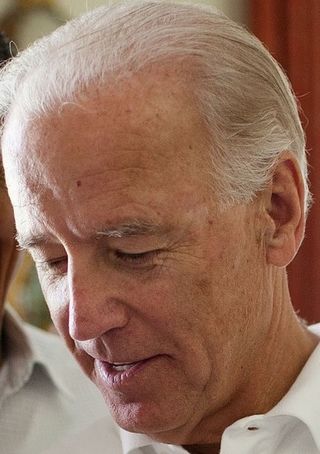
Today, Joe Biden is being judged for his actions. He is part of a topic many have talked about for several months: unwanted advances, and the steps those who have been subjected to them are taking to voice their discomfort or abuse. Many feelings are at the forefront. In some cases, those who are alleged to have made such advances are making an effort to stand and admit a crossing of boundaries.
Mr. Biden created a video that many saw as sympathetic. In it, he portrays himself as a man who wants more education on his actions, wants to listen, and wants to learn. Now, he will pass through the minds of others who will judge him for the past along with his response to these stories coming to the forefront. It happened this morning through an NBC segment highlighting the viewpoints from democratic candidates—thereby casting a vote on the particular stance they wish to align. It was a long list..
Does this help? Does this hurt?
As a woman and a media cognitive psychologist, I've noticed a trend over the last several years. Judgments are made. Sides are taken quickly. Ever notice the increase in speed of doling out judgment? Not to mention the boost in the number of people processing? Quick statements and lines are drawn through social media in various words of support, shock, dismay or a stance in "diplomatic" fashion. Mr. Biden's recent media focus is a challenging one due to his past empathic stance in government service (supporting specific US policies) and in his personal life (his tight ties to his family along with tragic losses). This is said to historically view the whole picture, not condone actions.
Throughout the day, many will witness others make efforts to persuade one side or the other. And the interesting things is, Mr. Biden has not made a declaration of his potential candidacy. Yet, he is in the ring with other candidates—it seems like the story's bridge turned into a platform. Many people were surprised by the allegations, and it brings to light the fact that many others expend great effort and energy to comment on events as they come. If a stance or side isn't taken, then in-action is also judged negatively.
As coverage continues, keep in mind these items (Lang, Potter, & Grabe, 2003). This piece is not meant to take one side, yet is written for readers to have some support in "processing" all that there is to "process" rather than relying on headlines.
1) Speak about what's on screen. Passionate feelings are high on the screen and may be in your household. We can say that some might interpret anger from either side. Help begin a dialogue focusing on why actions as citizens are important and why people are so heated on particular issues such as sexual harassment or those wanting to learn about how their actions might be misinterpreted. Our actions are based on culture. Culture is learned. And culture can change.
2) Slow down. News articles and segments are meant to be digestible in a concise amount of time. Often they are brief, emotional, and distressing. New outlets reach more viewers this way. We can help each other slow down and speak about the ideas presented. If your kids are watching the news, what do they think? Take the time to look up why these issues are important and what others want to do about these issues
Often in cognitive science, we talk about cognitive load, which is a theory positing that in order to have optimal learning, a small load on one’s working memory yields a better transfer to long-term memory (Sweller, 1998). It can be argued that newscasts did not carry a large load several decades ago, as most today have many emotional, passionate, and often angry points to exhibit. Along with that, we are processing many more viewpoints than ever before. Exhausting, anyone? Thus, more work is required from the working memory, long-term memory or probably both to process this information. We forget that we really only can focus on one thing at a time.
How will Mr. Biden's case will be resolved as it now lives on in a new digital footprint? What will be your motivation to process Mr. Biden's actions? Will that motivation effect your stance on him as a person? A politician? He made an active effort to "learn" about what to change, after those that felt discomfort is said so in a culture where it is now safer place to point out. Some could argue that Mr. Biden made some choices in his display of affection and support that may have been commonplace in another time. But to be cliche: "Times are changing."
References
Lang, A., Potter, D., & Grabe, M. E. (2003). Making news memorable: Applying theory to the production of local television news. Journal of Broadcasting & Electronic Media, 47(1), 113-123.
Sweller, J. (1988). "Cognitive load during problem solving: Effects on learning". Cognitive Science 12 (1): 257-285.


